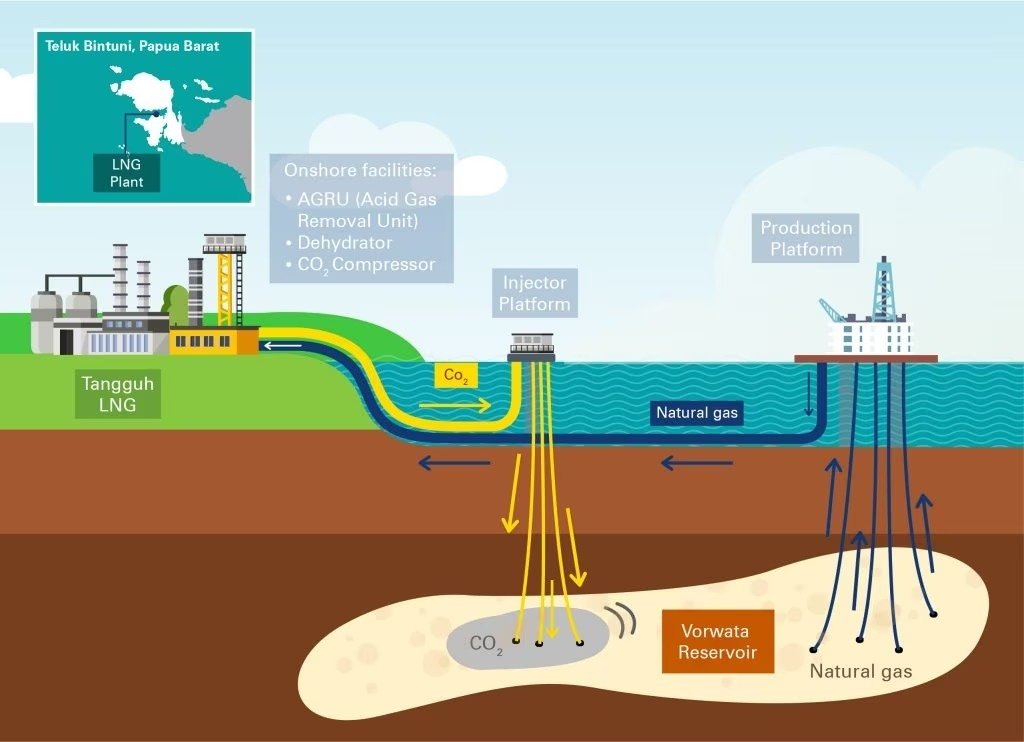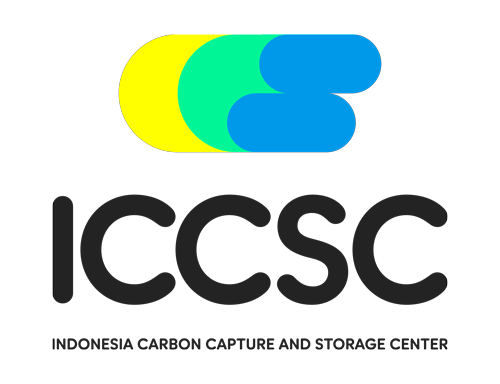In recent years, the global focus on mitigating climate change and reducing greenhouse gas emissions has increased, with carbon capture, utilization, and storage (CCUS) or carbon capture and storage (CCS) emerging as an important strategy. Among the countries at the forefront of this initiative, Indonesia has positioned itself as the top choice for the CCS project. Indonesia is proud to announce its dedication to fighting climate change through the implementation of carbon capture and storage (CCS) technologies. As one of the world’s largest greenhouse gas emitters, Indonesia recognizes the urgency to address climate challenges and take proactive action to significantly reduce its carbon footprint. The adoption of CCS solutions marks an important step in achieving the nation’s sustainability goals while driving a greener and more sustainable future for generations to come.
Among the companies driving CCS projects in Indonesia, bp Indonesia plays a key role with its strong commitment to the challenge of climate change. As a leading oil and gas multinational company that has been operating for more than five decades in Indonesia, bp brings the expertise, technology and financial capability necessary to advance CCUS/CCS initiatives in the country. The implementation of this technology is very important in supporting the energy transition, which is seen by both the government and industry as a decarbonization solution that is significantly available and operationally efficient.
At Tangguh gas field, for the initial phase, bp Indonesia plans to inject 30+ million tons of CO2 back into the reservoir to help us recover 400 bcf of gas through Enhanced Gas Recovery (EGR). This will be the first large CCUS-scale project with EGR in the world. Holding ca 1.8 GtCO2 in storage capacity, Tangguh is well-positioned and has a tremendous opportunity to become the country’s first CCS hub for domestic and international emitters.
The Tangguh CCUS project managed by bp is the most advanced CCUS project in Indonesia, with a development plan that has received approval from the Government of Indonesia in 2021, ongoing FEED work and planned project sanction in the near future. This project has the potential to become the first CCS hub in Indonesia and in the region. With the support of the Government of Indonesia in providing a regulatory framework, Tangguh CCUS will be a pioneer for a number of CCUS/CCS projects in Indonesia.
bp has been a strategic partner for Indonesia for more than 55 years. All bp businesses have a footprint here, with Tangguh LNG as the largest gas producer in the country, Castrol in lubricants and trading, while growing the latest entry in retail and aviation fuel, with a total investment of $15 billion to date. In Papua Barat, bp’s presence comprises Tangguh LNG and offshore wells. Tangguh is the highest-producing gas field in Indonesia, contributing ~20% of national gas production, recording a total investment of ~US$10 billion, safely delivering >1,500 cargoes, and generating ~US$10.1 billion (Rp152 trillion) in revenue for the government. By the time Train, 3 is operational, Tangguh’s three-train business will contribute about 35% of national production.

Jodi Mahardi, as Deputy for Maritime Sovereignty and Energy Coordination & Advisor of Indonesia CCS Center, also welcomed this initiative and expressed his support in encouraging the development of CCS technology in Indonesia. He stressed the importance of public and private sector cooperation in achieving common goals in addressing climate change. “The Government of Indonesia and the ICCSC fully support the efforts of bp Indonesia and all other stakeholders in advancing CCS. This collaboration is key in achieving emission reduction targets and maintaining environmental sustainability for future generations, and with the great potential that Indonesia has to make CCS a Hub in the ASEAN region so that this investment will provide a multiplier effect for the country in terms of economic growth and sustainability.”
This is also in line with Pupuk Indonesia, Rahmad Pribadi, President Director of PT Pupuk Indonesia (Persero) said, “Pupuk Indonesia which is currently conducting a feasibility study for the blue ammonia project in Aceh with the potential of Arun Field as a CCS location, and also the blue ammonia project in the Abadi Gas field-Yamdena Island. Aceh is located on the international trade route of the Strait of Malacca and has great potential to be developed as a CCS Hub due to its large CO2 storage capacity of about 824 million tons of CO2.”
Thus, the government and industry must increase public awareness and support for government policies related to CCS/CCUS and the provision of government budgets for implementing CCS/CCUS (such as tax incentives and direct funding). This can be achieved through joint environmental research studies, field trips, public consultations, and community road shows.
The Indonesian government hopes that the spirit of collaboration that bp demonstrates will encourage stronger cooperation between the government and the upstream oil and gas industry players. Collaboration is indispensable in the formulation of regulations and all related policies. The Indonesian government believes CCUS/CCS will have a positive impact on Indonesia’s ongoing decarbonization efforts that are conducted together.


